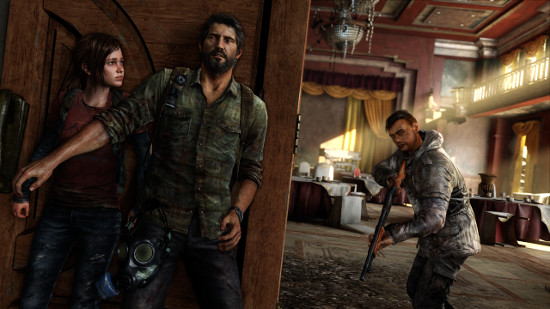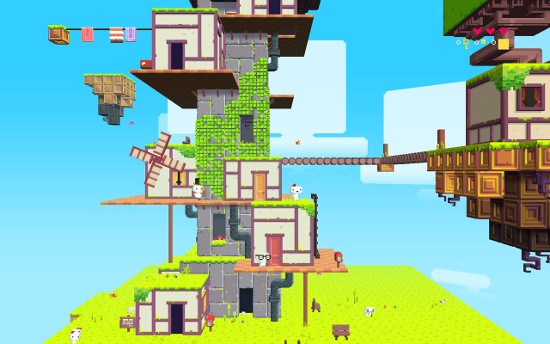Having joined the newly launched generation of videogame consoles by purchasing a PS4, and with a healthy crop of new games now announced, it seems like a good opportunity to look back at the games that changed the medium over the course of the past generation which spanned some eight years. Over that period gaming became a truly mainstream form of entertainment, aided in a large part by the Wii despite Nintendo’s inability to replicate its success. Many developers matured in their understanding of the unique experiences that games can offer by virtue of their interactivity. The games listed below are not necessarily the best games of the generation but ones that stand out as having brought something new to the table.
Wii Sports: The pack-in title for the Wii single-handedly won over an entire new audience to gaming and proved the concept of motion control. Unfortunately for the console, the game remained one of the best reasons to own a Wii throughout its lifetime.
Mirror’s Edge: A critically acclaimed but commercially unsuccessful new IP, its crisply minimalist visual style turned heads but its real talent lay in its exhilarating free-running that redefined the possibilities for freedom of movement in a first-person perspective. Surprisingly, few games managed to build on this at the time, but that sense of movement seems key to several early games in the new generation.
Heavy Rain: Quantic Dream’s approach to interactive storytelling came of age with this dark thriller that let players explore the results of choices they made for the characters in a story that could continue even if several of the protagonists perished. It was often mistaken for a series of quicktime events, but realising player agency in choosing to miss a button prompt to achieve a desired (rather than dictated) result was an important new trick.
Journey: An utterly beautiful slice of art in the abstract, Journey’s genius lies in its intentionally minimalist take on the multiplayer experience. Dynamically paired with a stranger as you play, your only ability to communicate is through movement and a single sung note. Yet traversing the world feels so much more fulfilling when shared by even that frail connection. The result both prevents others from breaking immersion and explores our shared humanity.
Portal: Valve’s first-person platform puzzler came out of nowhere, delivering exceptional writing that raised an otherwise interesting game mechanic to another level entirely. Genuinely hilarious, the sequel’s scripting deserves to be studied for showing that comic timing and even physical comedy can be cleverly maintained without requiring the player to relinquish control of their character.
Bioshock: Bioshock is the other game to be prized for its writing above all else, this time in a more dramatic vein. Whilst the decaying art deco visual design of its world is beautiful, it is the Ayn Rand-inspired story that delivers a rare literary game.
Guitar Hero/Rock Band: Sure, the annualisation of rhythm games burned out the audience and those plastic instruments are now filling up closets and/or landfills, but Guitar Hero provided an entirely new way to experience the music you love, whilst Rock Band turned it into a social experience. There was no better party game this generation, in my opinion, and ultimately it led to Rocksmith which actually wants to teach you to play the guitar in the guise of a game.
Uncharted 2/The Last of Us: Whilst most games in this list are those finding their own path, eschewing films as inspiration, Naughty Dog proved on two occasions that games should not turn their back on cinematic experiences entirely, because it can be done right.
Gears of War: Gears popularised the “cover shooter” which largely replaced standard First Person Shooter run and gun mechanics this generation with a new variant that required strategically sticking to cover to survive. It slowed the pace of twitch shooters allowing for greater tactical consideration. Of course this also led to entire worlds filled with convenient waist-high walls.
Brothers: A beautiful, low-budget fable about two brothers on a quest to save their dying father, Brothers proved that the very control mechanics of a game (in this case using one half of the gamepad for each of the boys) can be vital to its emotional impact. Brothers could be told as a story in a book or film format, but only by controlling the boys yourself does the final act produce its unforgettable sensation.
Dear Esther/Gone Home: There is rightly some debate over whether these “interactive experiences” truly amount to games but for now they fall within the gaming stable. They demonstrated new approaches to storytelling through the creation of a self-contained world, allowing the player to uncover details in the process of exploration.
Braid/Fez: Cerebral, artistic platform puzzle games, the ultimate lesson here was that there is a market for pretentiousness provided you are clever enough to justify it. Even if blockbuster titles and rising budgets do squeeze out mid-sized developers, the indie scene is alive and well and will continue to innovate and supply new ideas.
Left4Dead: I probably clocked more online multiplayer hours in this game than all others combined because of the invention of its AI Director which would dynamically choose to spawn the zombies and “special infected” that attacked, creating a different experience every time but maintaining a certain sense of rhythm. I have never so enjoyed snatching defeat from the jaws of victory as in its escape sequences.
The Walking Dead: Arguably Telltale’s Sam & Max outings should feature here as proving the concept of episodic gaming. But The Walking Dead is where the writing bar was raised so dramatically that everyone took notice. Telltale has proved it was no fluke with The Wolf Among Us, and in 2014 they will be managing four different episodic series.
Although it’s too early to look ahead another eight years, huge early sales figures for both Sony and Microsoft make it clear that the nay-saying regarding waning interest in consoles was unwarranted. Players have not abandoned them for portable devices. Some have queried whether the new generation will be the last of the console cycles, being replaced instead by iterative hardware or cloud-powered solutions. Whether or not there is widespread adoption of VR over the next several years will dictate much of this, as it could see a decline in the need to be sat in front of a large living room screen but would also make low-latency systems more essential than ever.




Leave a Reply